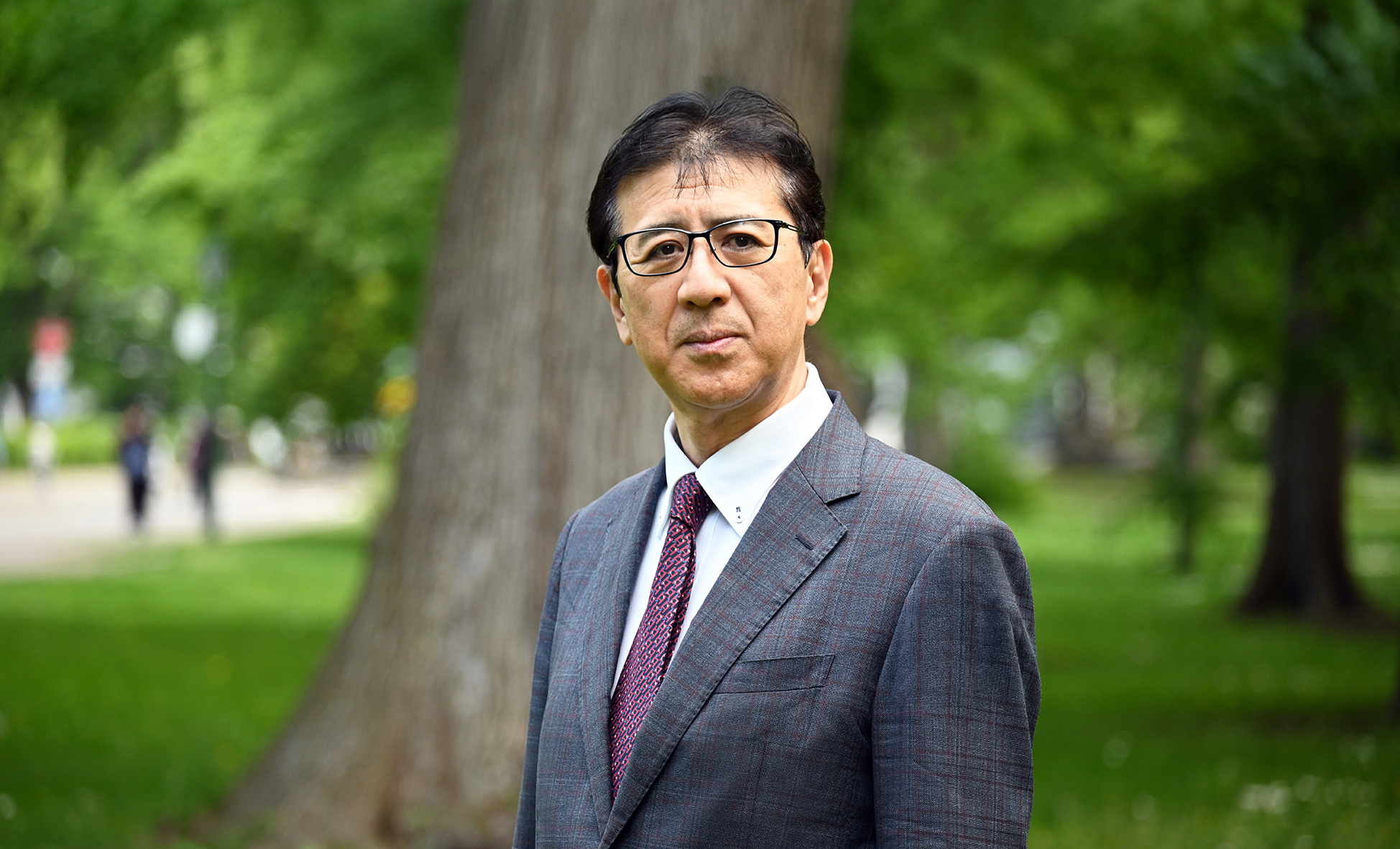Curiosity Widens Your World
Study at the School of Science

Dean of the School of Science, Hokkaido University
The School of Science at Hokkaido University was established at almost the same time the university began its journey as a comprehensive institution. In 2030, it will celebrate its 100th anniversary. Throughout its long history, the School of Science has continued to pursue “knowledge”, and its accumulation has served as the foundation for pioneering the future. Today, the School of Science consists of six departments— Mathematics, Physics, Chemistry, Biological Sciences (Biology), Biological Sciences (Macromolecular Functions), and Earth and Planetary Sciences. Students at the School of Science belong to one of these departments, where they cultivate their expertise. Their first step begins with learning the system of “knowledge” built by their predecessors. Science is not just about understanding unknown phenomena within the framework of existing “knowledge”; it is also the pursuit of new “knowledge” when faced with phenomena that cannot be explained by current frameworks. Many students realize that what they have learned so far is only a fraction of the vast world of “knowledge”, and they may feel overwhelmed by its sheer scale.
Scientific research has progressed, driven by intellectual curiosity—the desire to deepen our understanding of natural phenomena and discover unknown principles. At first glance, it may seem disconnected from our real society. However, please consider this: The “knowledge” that serves as the foundation for today’s AI technology, which is revolutionizing the world, was established some decades ago through fundamental research in mathematics and other scientific fields. Similarly, the “knowledge” that underpins quantum computing and genetic engineering originated from pure intellectual curiosity over a century ago. Over time, these discoveries have been systematized as frameworks for understanding unknown phenomena and have evolved into technologies with the potential to transform human life. There are so many other examples. Scientific research is not only about addressing immediate subjects; it is also an investment in “knowledge” for the future— possibly even 100 years ahead.
At the same time, science plays a crucial role in solving urgent societal subjects in the modern world. Climate change, energy issues, medicine, AI and information technology, materials science, and nanotechnology—scientific knowledge is indispensable in all of these fields. That is why the School of Science is committed not only to providing specialized “knowledge” but also to fostering critical thinking, insight, and communication skills—all of which are developed through the process of researching unknown phenomena. These skills serve as a driving force that supports society, regardless of students’ career paths after graduation. In fact, graduates of the School of Science are active in a wide range of fields, including academia, research and development sectors in private companies, data science, education, government, and consulting.
The advancement of science is the driving force that shapes the future of society. We sincerely hope for your support in the ongoing challenge of the School of Science at Hokkaido University to cultivate the power to pioneer the future.
Academic background
| 1988 | Graduated, Tokyo University |
| 1992 | Assistant Professor, Liberal arts school, Osaka University |
| 1994 | Assistant Professor, School of Science, Osaka University |
| 2003 | Associate Professor, Faculty of Science, Hokkaido University |
| 2010-present | Professor, Faculty of Science, Hokkaido University |

